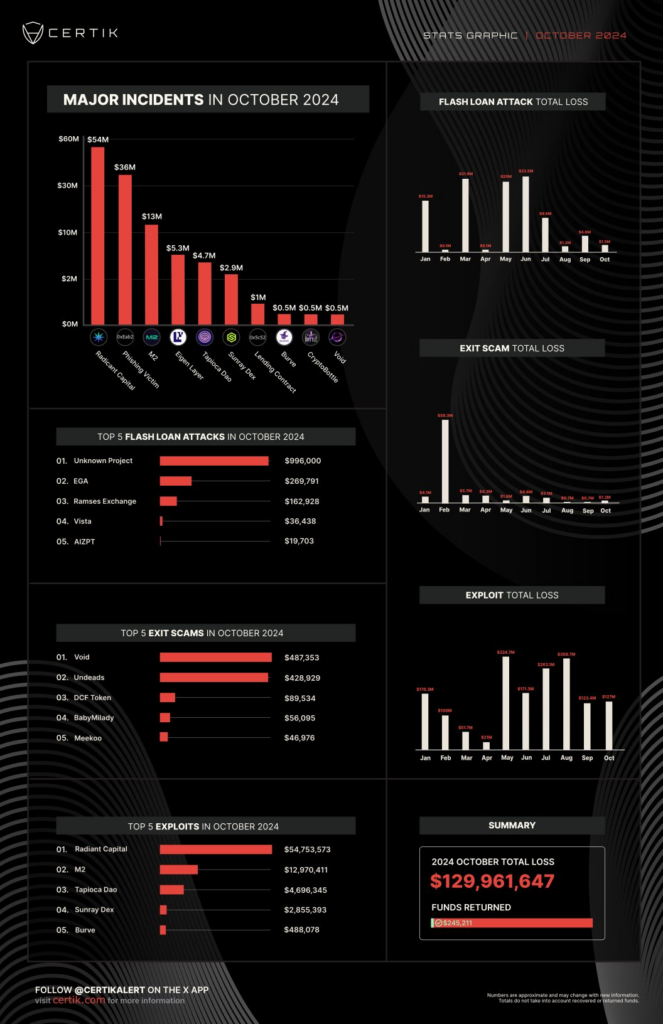- Crypto exploits caused $127 million in October, led by a $50M Radiant Capital breach.
- Flash loan attacks and exit scams contributed to smaller but notable losses in October.
- M2 exchange and a phishing incident involving a wallet added significant impacts to October’s security incidents.
October saw significant losses in the cryptocurrency space, totaling $129.6 million, as reported by blockchain security firm CertiK. Most of these losses came from exploits, which accounted for $127 million, while exit scams and flash loan attacks contributed to $1.2 million and $1.5 million, respectively. The incidents highlighted vulnerabilities within different areas of the crypto landscape.

Source: CertiK on X
Key Security Incidents in October
Radiant Capital, a lending protocol, experienced the largest hit last month, losing over $50 million on October 16. This breach led the protocol to suspend operations in its BNB Chain and Arbitrum markets. A detailed analysis revealed that hackers infiltrated the devices of several core developers through malware, gaining unauthorized access to private keys and smart contracts.
Radiant Capital resumed its Ethereum-based services on November 1 and announced stronger security measures, including a transfer of protocol ownership to a timelock contract. This new structure enforces a 72-hour waiting period for any changes, aimed at bolstering security.
Other Major Losses and Industry Impact
Beyond Radiant Capital, another significant event involved a crypto wallet that lost approximately $36 million in fwDETH on October 11 due to a phishing transaction. Additionally, crypto exchange M2 reported a $13.7 million hack on October 31, where attackers accessed the platform’s hot wallets and took Bitcoin, Ether, and Solana. M2 stated that it had resolved the issue and restored affected customer funds.
Overall, October’s losses marked a slight increase from September’s $123.4 million but showed a 60% reduction compared to May’s substantial $324.7 million. Despite these challenges, the industry continues to adapt and strengthen its security protocols to address ongoing threats.














